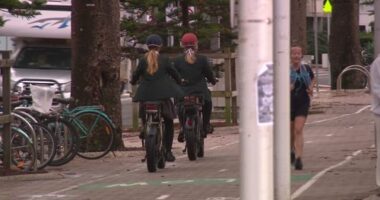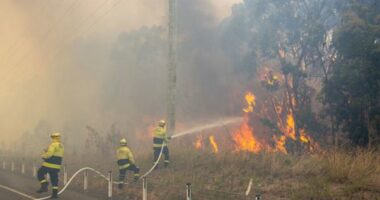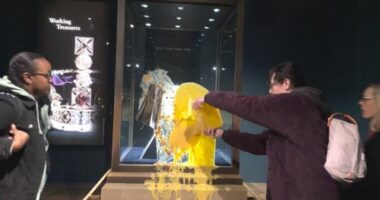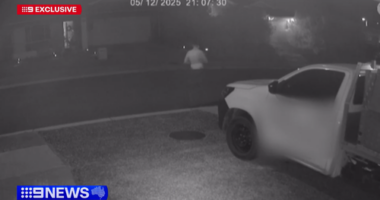Share this @internewscast.com
“The Australian Open was surreal, indescribable,” he shared. “It validated my work, confirming that my efforts aren’t in vain.”

Fiston Baraka performing at the 2025 Australian Open. Source: Supplied / GRID Series / Mark Peterson
The recording studio is a world away from the refugee camp where Baraka grew up, but the memories remain vivid and live on in his songs.
“My biggest following is Nigeria, South Africa, and the United States,” he said. “Australia sits at number four.”
Cracking an $8bn industry
The Australian music sector, according to a recent Music Australia report, accumulates $8.78 billion in revenues.
“I’ve encountered numerous clients entering the studio with a specific background, often stemming from economic advantage, frequently supported by their parents financially.”

Fiston Baraka (left) remains in contact with co-founder Ariel Blum after his GRID Series mentoring. Source: SBS / Scott Cardwell
It’s one reason Blum co-founded a music mentoring project called GRID Series in 2013, to give artists from disadvantaged backgrounds a helping hand.
“A lot of our conversation was about his family’s story, coming from overseas and arriving in suburban Geelong, and how much of a cultural shock that was for Fiston and his family.”
‘I learned English by watching cartoons’
While Baraka has happy childhood memories of making friends there, he faced many hardships too. Food was short and illness rife.
Drawing on the resilience many refugees are respected for, Baraka went on to finish high school and tertiary qualifications, spent six years working in construction then started his own music business.

Fiston Baraka (right) as a child with his family in Zambia. Source: Supplied / Fiston Baraka
He now explores his refugee journey through song.
“I didn’t think of music as being anything more than a hobby when I first started, but now it is a passion and something I can actually make a career out of, as well.”
Chasing a dream
“Things like setting up an ABN, registering your business name, claiming all of your profiles on different platforms, and registering for APRA AMCOS. Often they will come and do an information session, too,” said Blum.
“And when you are around Fiston, you feel excited,” he said.

Fiston Baraka, who performs as Baraka the Kid, has a lot to smile about. Source: SBS / Scott Cardwell
GRID Series currently runs in three states and aims to bring more diversity into Australia’s music scene.
“And GRID is a hotbed of stories about an Australia that I recognise.
For Baraka, who quit a full-time job in construction to chase his music dream, recent success is sweet, but his goal is to touch people through his songs.

Joel Ma (right) is proud of Fiston Baraka’s global success. Source: SBS / Scott Cardwell
“Joel Ma told me that being Congolese and speaking Swahili makes my music unique,” he said.









